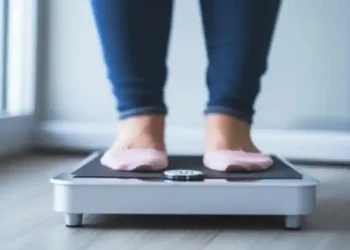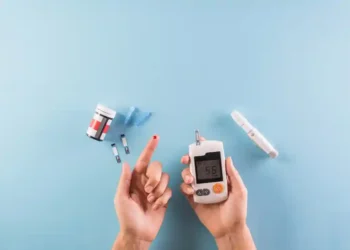Did you know being angry, even for a moment, can badly impact your vascular health? A study from Columbia University shows how moments of rage hurt our blood vessels. This damage could spike the chances of a heart attack or stroke for the next 40 minutes.
This research looked at 280 people. It found short anger episodes make our blood vessels work poorly. This causes blood and the vital things it carries, like oxygen and nutrients, to not reach our body’s tissues well. So, heart and stroke risks go up, urging us to take anger and our health seriously.
Learning from this study, we see how crucial mental health is for our heart. While it’s normal to get angry, we must not neglect its harm to our blood vessels. To protect our heart and avoid strokes, we need ways to handle anger better.
Key Takeaways:
- Brief moments of anger can impair blood vessel function and increase the risk of heart attacks or strokes for up to 40 minutes.
- An angered state leads to an impairment in blood vessel dilation, disrupting the supply of vital oxygen and nutrients.
- Maintaining good mental well-being is essential for cardiovascular health.
- Effective intervention strategies are needed to mitigate the damaging effects of anger on blood vessels.
- Reducing anger can help lower the risk of heart disease and strokes.
The Link Between Anger and Vascular Health
A US study found that being angry for short periods can hurt our blood vessels. This can make it hard for them to open up like they should. As a result, people might face a higher risk of heart attacks and strokes.
Why does anger affect our blood vessels this way? Well, anger can cause more inflammation in our bodies. Also, our autonomic nervous system, which works without us thinking about it, can get more active when we’re mad. This process might involve stress hormones like cortisol, making our blood vessels function poorly.
It’s crucial to control anger and reduce stress to help our hearts. Doing this can lower the harm to our blood vessels. So, how can we do this? Trying things like deep breathing, meditation, and staying active can be really helpful. These methods are good for managing anger and keeping our heart and blood vessels healthier.
But remember, we need more studies to understand anger’s full impact on our health. And, knowing what exactly to do to help those at high risk of heart problems is vital. This way, we can make better plans to prevent and treat heart issues.
A recent US study has shown how short moments of anger can affect our heart. It ties anger to problems with our blood vessels. This connection is key for both doctors and people. They can work together to control anger, lower stress, and boost our mental health.
We can handle stress and anger in many ways. Things like working out, taking time to relax, doing things we love, and talking with friends help a lot. These steps can make our hearts stronger. Doing regular exercise is not only good for stress. It also makes our heart health better.
If stress feels like too much, getting professional advice might be a good idea. This could mean seeing a therapist or joining a program to learn stress management. Taking care of our minds is essential. It can keep our hearts happy and healthy.











